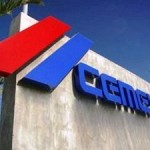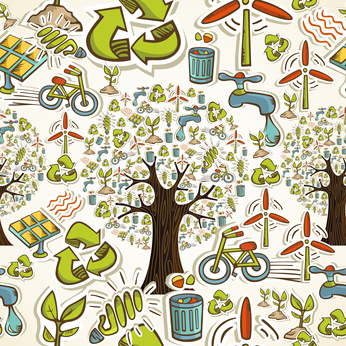 New Delhi – Sustainable development should be in the DNA of an organization and adoption of sustainable measures should not be seen as an expense but as an investment for the future. This was the gist of the discussants at the “CEOs’ Session – Sustainability: The New Business Excellence Mantra” at FICCI India Sustainability Conclave 2014.
New Delhi – Sustainable development should be in the DNA of an organization and adoption of sustainable measures should not be seen as an expense but as an investment for the future. This was the gist of the discussants at the “CEOs’ Session – Sustainability: The New Business Excellence Mantra” at FICCI India Sustainability Conclave 2014.
CEOs of some of the world renowned organizations from diverse sectors shared their experiences on a top-down approach and their vision on corporate sustainability during the session. Environmental and social governance, they felt, were critical to maintaining a successful business mantra.
Ms. Naina Lal Kidwai, Country Head, HSBC India and Immediate Past President, FICCI, emphasized the need to look at sustainability beyond charity. An organization which creates social value is sustainable in the long run. Private and multinational banks are better positioned to create innovation and bring the best practices from rest of the world than the public sector banks. But there is a need to formulate standards to decide which sectors should a bank lend to.
Ms. Kidwai suggested that to engage the supply chain in the sustainability drive, companies must engage with customers. It is known that business cannot exist without finance; therefore, if financial institutions decide to decrease the flow of finance into carbon projects then automatically resources will flow into non-carbon projects.
Mr. Vipul Shah, President, CEO and Chairman, Dow Chemical International Pvt. Ltd., said that there was an unprecedented need for collaboration between business, government, academia and civil society. The world needs solutions to challenges such as climate change, energy, water; sustainable development can answer these. However, to achieve sustainable development companies must look at science and technological developments around the world.
Mr. Ranganath N. K., MD and CEO, Grundfos India, said that business excellence is a philosophy that should connect with the business strategy and passion was the most important ingredient for achieving both sustainability and business excellence. Economic, environment and social value creation is important and inclusiveness holds the key.
Mr. Atul Jain, Joint Managing Director, Jain Irrigation Systems Ltd., pointed out that inclusiveness was the most basic requirement for sustainability because it leads to innovation which eventually culminates into sustainable growth. To achieve continuous sustained growth and fair returns to all stakeholders, providing quality products and services at an optimum price to the market was necessary.
Mr. Manish Sharma, MD, Panasonic India, explained the meaning of ‘Eco Ideas’ which is the corporate philosophy of Panasonic. Eco Ideas comprise Green Life Innovation, which is about creating products that help in saving energy, engaging in research and development, and acquiring consumer insights. The other part of Eco Idea is Green Business Innovation where the focus is on improving processes and consuming less of resources. He added that his organization was in the process of addressing the issues faced by the value chain by creating, storing, saving and managing energy.

All CEOs echoed the need for effective implementation and enforcement of regulations.
In response to a question on how economic downturn could impact a company’s view on sustainability, the CEOs said if sustainability is seen as a cost, it will be set aside, but if it is integral to a company’s operations, it will be seen as an opportunity. Sustainability should be a way of life for companies, it does not need to be mandated.
CEOs’ Session was part of India Sustainability Conclave 2014 hosted by FICCI at New Delhi on February 4-5. ThinktoSustain.com was the ‘Media Partner’ for the event.
For more information, visit:
www.indiasustainabilityconclave.com | www.ficci.com
Source: FICCI.














